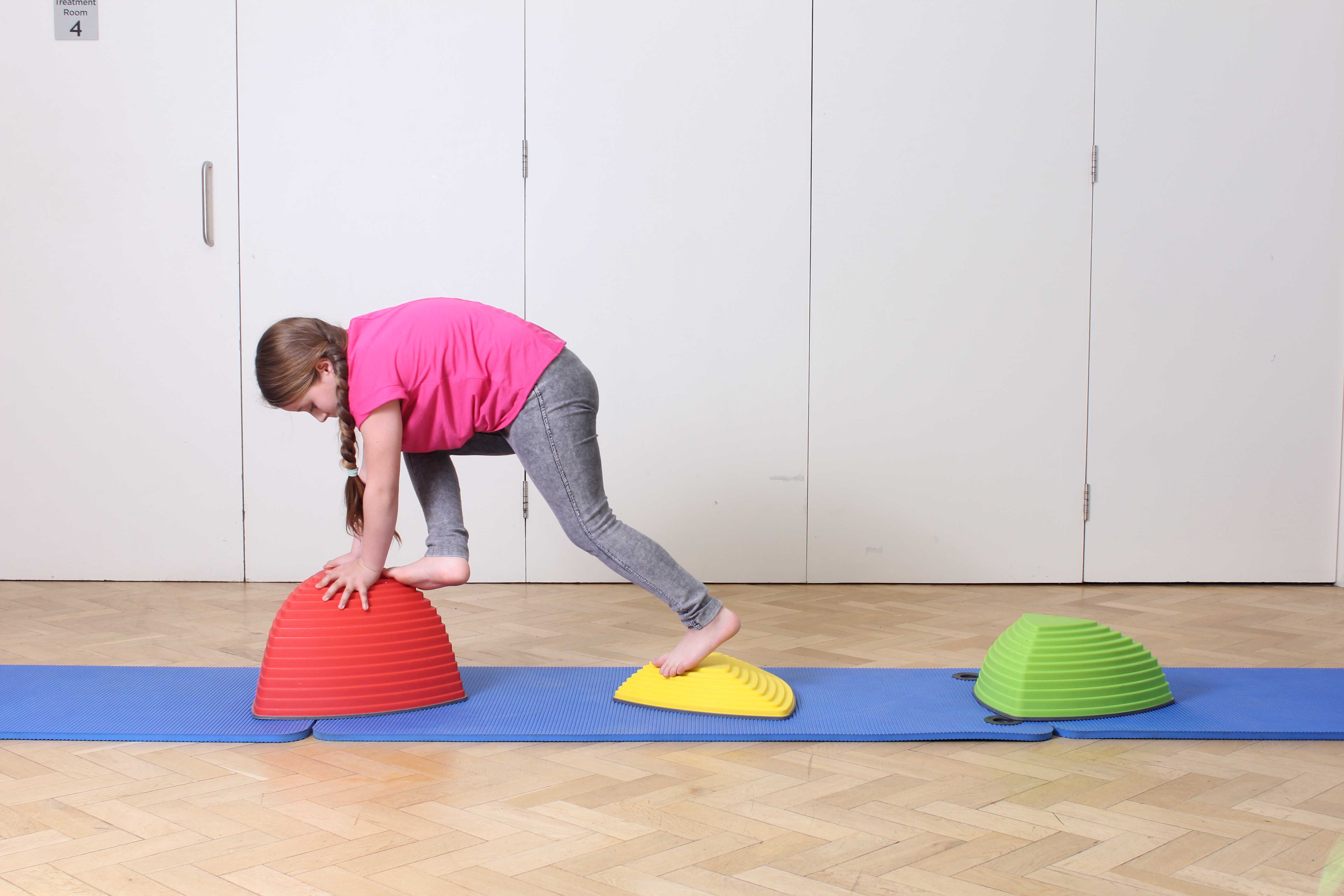What is Down’s Syndrome?
Down's syndrome or Down syndrome is a genetic condition that affects approximately 700 babies a year in the UK. Each person has a unique genetic makeup; this is made up from millions of genes. Genes are found in at the cells in our bodies. The genes contain the instructions required for our development and functioning. The Genes we have are arranged together in groups called chromosomes. Down’s syndrome is caused when a child inherits an extra copy of a chromosome. People with Down syndrome have three copies of chromosome 21 rather than two.
The additional chromosome will cause differences during pregnancy in the way the baby develops. The differences in development include; physical characteristics - the way the baby will look, health problems and problems with the development of thinking and learning skills. Every person with Down syndrome will be affected differently.
 Above: Functional fine motor skill exercises to improve independent living supervised by a paediatric physiotherapist
Above: Functional fine motor skill exercises to improve independent living supervised by a paediatric physiotherapistWhat causes Down’s Syndrome?
The exact reason or cause of Down syndrome is not known and it can occur in any family. The risk of your child having Down’s syndrome is higher in women that have previously had a child with Down’s syndrome or in women that have a child when they are older. Down syndrome is not caused by anything the mother did before or during pregnancy.
Down syndrome is a genetic condition. Doctors can diagnose Down’s syndrome by checking the number of chromosomes the child has.
What are the characteristics of Down’s Syndrome?
Certain facial appearances are associated with Down syndrome:
- Eyes slanting upwards
- Wider than average space between the eyes
- Small flat nose
- Small ears
- Flat back of the head
- Protruding tongue
- Shorter fingers and hands
- Shorter toes and feet
- Short arms and legs
- Decreased muscle tone
- Lax ligaments and joint problems
- Problems with eyesight
- Recurrent ear infections
- Congested nose
- Congenital heart defects
- Thyroid gland problems
- Gut problems
Physiotherapy for Down’s Syndrome
Physiotherapy is often very useful for children with Down syndrome. Babies with Down syndrome will achieve the normal developmental milestones; however it may take longer than normal. Most children with Down syndrome are able to walk by 24 months. Children with Down syndrome often have muscles that are weak and low tone, and lax or unstable joints. These problems can lead children with Down's syndrome to develop the following compensatory movement patterns:
- Standing with hips in rotated outwards
- Walking with hips rotated outwards
- Stiffness in the knees
- Pronated feet
- sitting with a flexed spine and tilted pelvis
- standing with an exaggerated lumbar lordosis (back arch)
Physiotherapy is important during the early stages of your child’s development. Physiotherapy at Physio.co.uk concentrates on:
- Strengthening muscles
- Increasing joint stability
- Increasing core stability
- Normalising muscle tone
- Working towards developmental milestones
- Avoiding the development of compensatory patterns of abnormal movements
- Exercise programmes
- Postural advice
- Strengthening and stretching exercises
- Balance exercises
- Hydrotherapy
The physiotherapists at Physio.co.uk can treat children and adults with Down’s syndrome. As people with Down syndrome age it becomes very important to maintain the health of bones, ligaments, and muscles. Physiotherapy can help increase the quality of life of people with Down’s syndrome by maintaining physical health.
The physiotherapists at Physio.co.uk have experience treating children and adults with Down’s syndrome. To arrange a physiotherapy appointment call Physio.co.uk on 0330 088 7800 or book online

 0330 088 7800
0330 088 7800





































